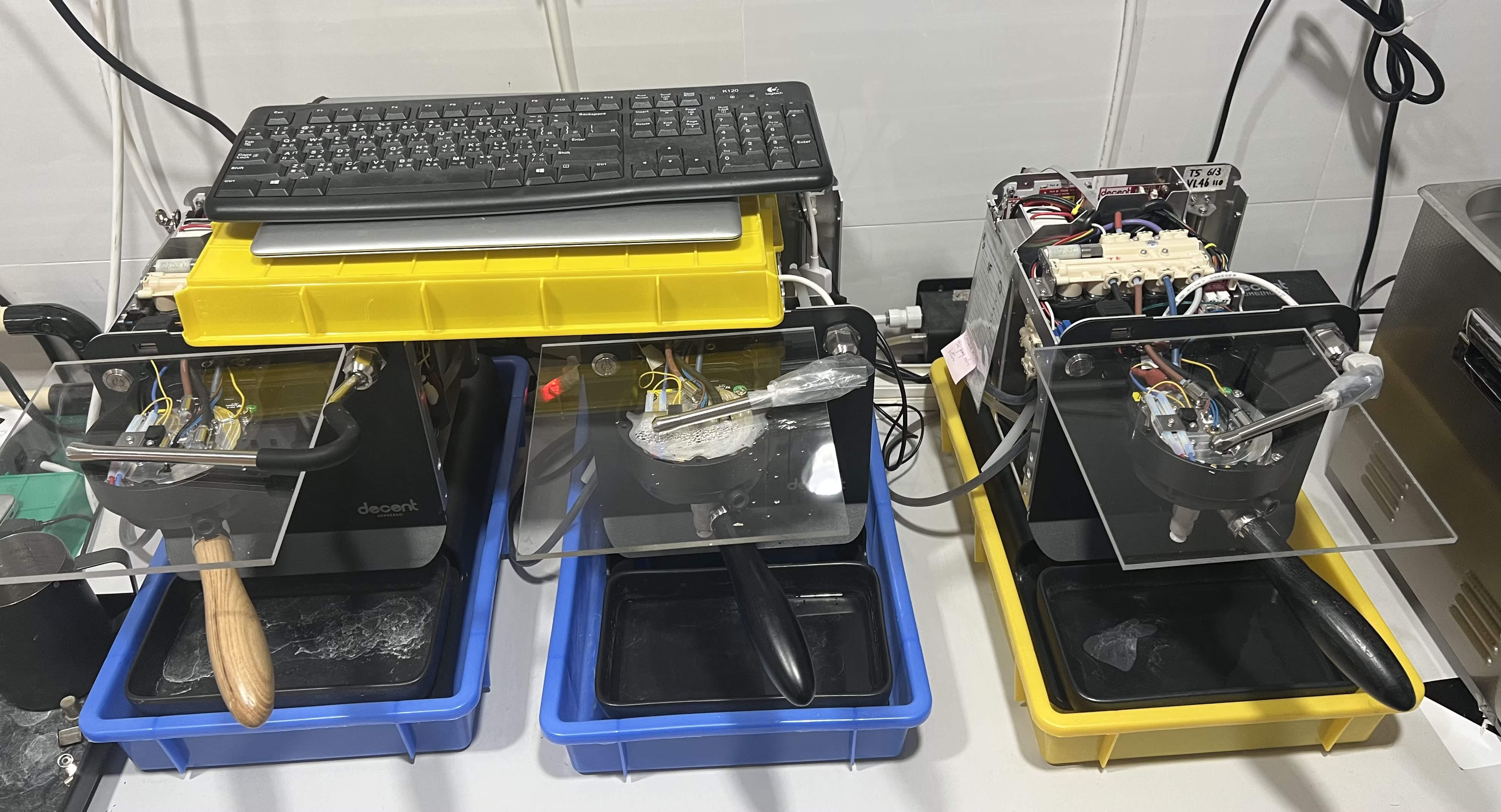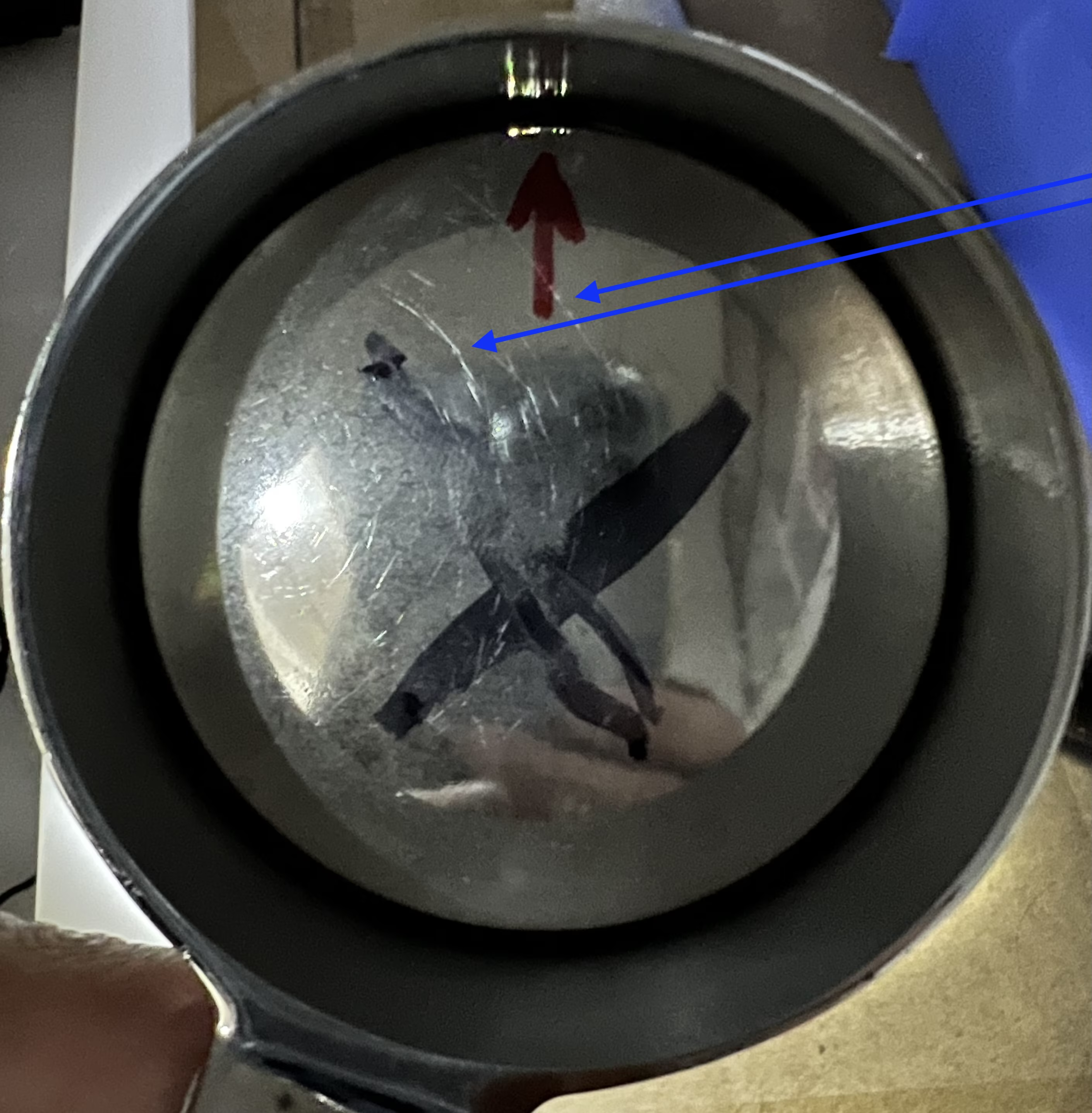MTBF (mean time between failure) testing at Decent Espresso
Given enough time and stress, everything eventually breaks.
At Decent Espresso, we have a room where we torture test our machines between extremes of temperature and pressure. We've run over 3 million stress test espressos on our 4 test machines.
Whenever we are planning on putting something new into our machines, it goes through these tests. The new part needs to last as long as everything else. In practice, this literally means that we're no longer able to break it.
After 4 years of doing this, we're now finding that the "no hole" (blind) portafilter baskets that we use to create this test, are the first thing to fail, between 30,000 and 154,000 espressos.
It's really quite something that a 1.2mm thick piece of stainless steel, breaks first.
We tried switching to plastic nozzles on a basket (to relieve pressure) but that test gear couldn't withstand the test either. Last week, we ordered custom-designed blank baskets to be made for us, which we hope can survive our stress testing.
This is why only 0.3% per year, of all the espresso machines we've ever sold, need us to repair them.
We're now at a point where nothing from our standard machines breaks in our test machines. Only new parts that are still in R&D, break when they go into the test lab. We then iterate on the design until we can no longer make it fail. In the photo at the top, you can see that there is steam under the plastic cover of the center machine: this is from a new group head heater design that we are still working on.
The key takeaways:
Key Points Summary:
1. Cycling Test Process:
* Ramp up to ~13 bars, hold for ~6s, then release in ~2s.
* Each cycle lasts ~8s.
* Transitioning between hot/cold cycles extends pressure release to 12s for faster cooling.
2. Design & Testing Timeline:
* Conducted on DE1XXXL with AIO manifold batches v2–v4.
* Cycle counts:
* Manifold v2: 337k test cycles
* Manifold v3: 1151k test cycles
* Manifold v4: 1463k test cycles
3. Post-v5 Testing (Aug 2024–May 2025):
* DEXXXL 220V: 1,084k test cycles
* DE1PRO 220V: 1136k test cycles
* DE1PRO 120V: 540k test cycles
* DE1XL 220V 737K test cycles
4. Failure Observations:
1.0 bar" due to valves not opening fully before pump activation.
* Cause: Long-term wear prevented pressure release, leading to abnormal operation.
* Solution: Fixed via software programming, change of valve power timings.
5. Component Durability Issues:
6. Visual Evidence:
Key Takeaways:
mirjam updated 2025/07/24



